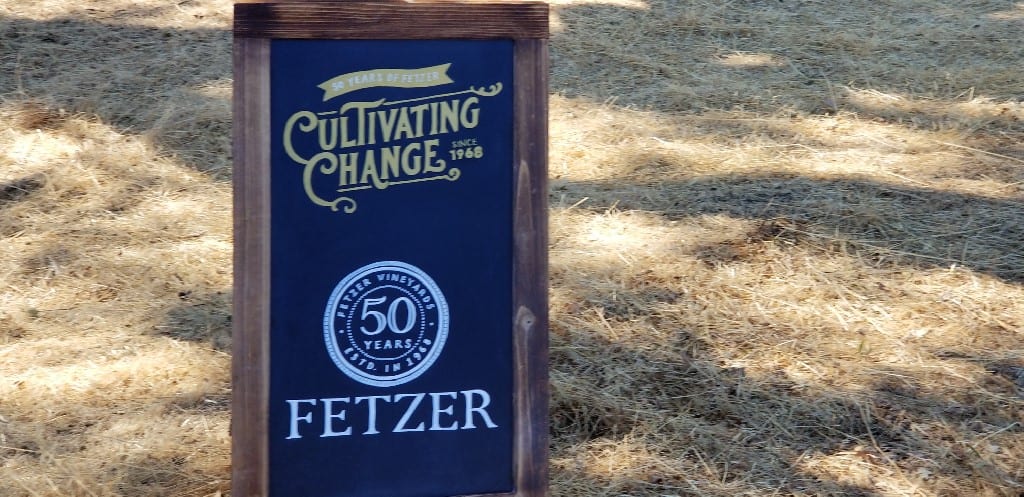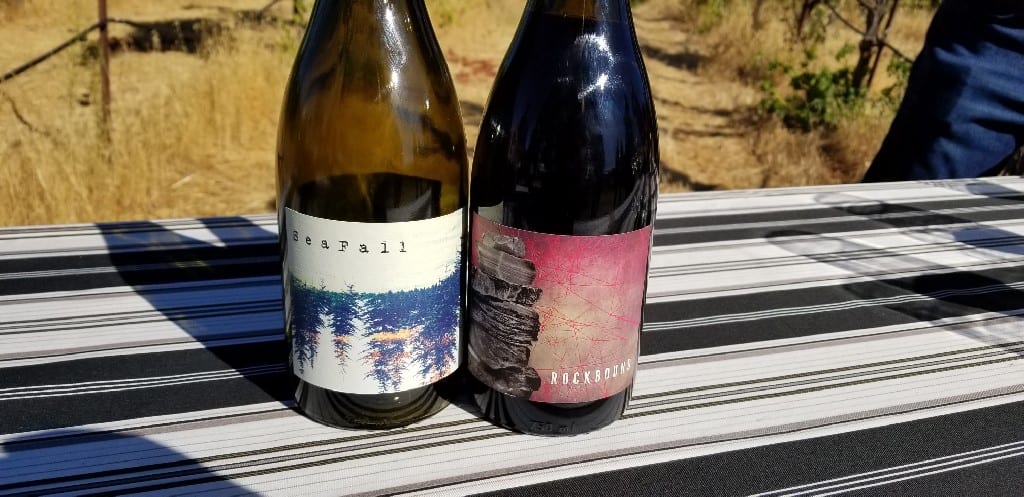

06 Dec Fetzer Vineyards at 50!


Fetzer Vineyards is celebrating their 50th anniversary. Owned by Chilean company Viña Concha y Toro since 2011 and one of the largest wine companies in the United States, one might think that they have achieved their pinnacle after five decades.
But, Fetzer Vineyards has been ahead of the game from the beginning. And as they celebrate 50 years, they look forward to the future with a lot of innovations.
Founded 1968, Fetzer Vineyards was established with an earth friendly ethos before it was trendy. Sustainability is embedded in the DNA of the company. They began farming wine grapes organically in 1987 after being inspired by an organic vegetable garden on the property. Over the decades, Fetzer Vineyards:
- began tracking and reducing waste since the 1990s
- has been using 100 percent renewable energy since 1999
- received biodynamic certification on some vineyards
- installed a solar array comprising 75,000 square feet of panels
- became Zero Waste certified and is the world’s largest winery certified as a B Corporation as of 2015.
Fetzer Vineyards presented carbon neutral wine grapegrowing best practices at the Paris Climate Talks in 2015 and became certified CarbonNeutral in 2016.
Over the decades, Fetzer Vineyards has been recognized for their work in cultivating change. Fetzer Vineyards received the first Enhanced Environmental and Economic Leadership Award from the California Governor in 2008. In 2017, Fetzer Vineyards was honored with the United Nations Momentum for Change award for their work to mitigate climate change.


They were one of only 19 global enterprises awarded and in addition, they were the only winery and the only U.S. brand honored. Fetzer Vineyards was also the first recipient of the California Green Medal Leader Award in 2015 and received two additional awards in 2017.
And 2018 brought more accolades when they were recognized as a “Changemaker” among certified B Corporations due to their “measurable, verified progress towards enhancing its leadership sustainability in the wine industry and beyond.”
This list of achievements was accomplished in the first 50 years, but Fetzer Vineyards has more in store as they plan for the next 50 years. The company wants to leave the world a better place but putting more back into the world than what they take from it. Their regenerative practices include building soil health, rebalancing the water cycle, increasing biodiversity and ecosystem resiliency and sequestering carbon from the atmosphere.
Their achievement of CarbonNeutral is just the beginning. By 2020, they plan to reduce water use at the Hopland winery by 15 percent and to reduce energy use by 20 percent, both from their 2015 baselines. They also plan to achieve carbon neutrality, divert 99.9 percent of waste from landfills or incineration, purchase 90 percent or more of grapes from certified sustainable or organic growers and increase their B Impact assessment score from 95.1 to 100 (out of 200). The ultimate goal is to be net positive in 2030.


In addition to being an agent of change in their environmental work, Fetzer Vineyards has continued to release new wines and has launched a new line of wines, the Fringe Collective. The Fringe Collection is a luxury product, with only 500 cases of each wine in the portfolio produced. Winemaker Sebastien Donoso, who has been at Fetzer Vineyards for two years, is sourcing fruit from out-of-the-way vineyards. He is looking to create wines that express the place they are from and is selecting fruit from areas based on their soil, fog, altitude and proximity to the ocean.
The Seafall 2016 Chardonnay, West Sonoma Coast ($50) is a Chablis-inspired chardonnay. The fruit is from the Heintz Vineyard in West Sonoma Coast and is one of the closest vineyards to the ocean. The wine is barrel fermented in neutral barrels and spends time sur lees, resulting in an austere wine with citrus, red apple and lemon curd notes, high acidity and a silky mouthfeel.
The Rockbound 2016 Pinot Noir, Bien Nacido Vineyards ($65) – The shale on the label represent the soils found under the vines. The Pinot Noir is barrel fermented and ten percent whole cluster. It has vibrant aromas of raspberry, pomegranate, violets and brown spices. The shale soils contribute to the minerality of the wine, which has high acidity but is silky smooth.
The newest addition to the Fringe Collective will be the 2015 Cabernet Sauvignon from Coombsville, an area with rocky soils and high altitude.
With new product lines and their focus on climate work, Fetzer Vineyards is on the path towards their next 50 years.
Read the original story in the Napa Valley Register.Discover more from Please The Palate
Subscribe to get the latest posts sent to your email.


